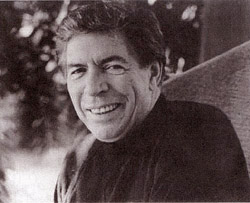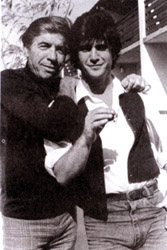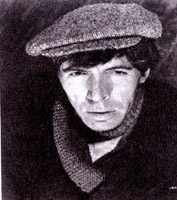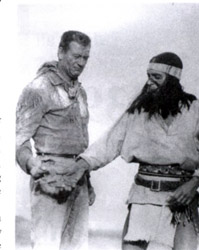
Michael has worked on many fine films and stage plays over his career, it is not a matter of saying who he has worked with on the stage or screen but who hasn't worked with him! Karen Nixon interviewed Micheal with some questions from locals. How did we fit a career of more than forty years and in excess of 180 films into a two page spread. Here is our condensed version.
Actually I wanted to be a medical missionary but due to The Depression my parents could not afford the university costs. I originally did an accountancy course and worked in Sydney however I became quite disgruntled with that role. One day while leaving work I passed the ABC Studio in Caslereigh Street. I decided to walk into the ABC Studio as I was fond of a radio program on air by George Ivan Smith about radio journalism and youth issues. I went in and asked would Mr Smith see me? I was directed up to the second floor and to my delight, there was George.
I introduced myself and he asked what did I want? I said to him I had another idea for a show called Dead End Jobs & Young People. He replied that it sounded very interesting, asked me to sit down and write a few lines on a page. As I sat there I saw a new thing called a typewriter. I had heard about typewriters but not used one...So I wrote..."Good evening and welcome to Voice of the Youth and tonight it is Dead End Jobs." George looked over my shoulder and said "That's looking good, when would you have time to write the rest for me?" I replied I had quit my job tonight. So it was decided I would return on the Monday and finish the script then broadcast it.
Within two weeks from the meeting I was on air and getting five guineas a shot. During this time I did interviews with people like HG Wells and was on air quite a lot. Producer, Charles Wheeler from the ABC, came up to me and said "I want you to read a play as I've heard you on air with George." So next thing I had progressed to radio acting!
Then World War 2 started and I was sent to the Middle East in the army. Six years later I was back home and on the radio again, as well as doing stage plays.
By the 1940s the film industry had become huge with many sessions crowded with 3000 people and just as many outside. It was extraordinary the adulation you got.
My family thought "our son the actor" but thought I was a bit strange with my corduroy jackets and suede shoes. But all actors of the time were a bit strange.

Most people won't go and see a film unless it's the calibre of Lord of The Rings or Shrek, you're lucky to see a film run for six weeks and then it's on DVD or VHS. Or you see it on Foxtel. There seem to be more films competing against each other and it's dog eat dog to raise the finance to make a film.
The trouble with big budget films is that you have many investors and with that comes many experts. With people telling you how to make your film, that's when you run over budget. The experts aren't always correct
I think that it would be wonderful to be able to share the great experiences and skills. That way they are not lost and the community and industry could all benefit. That would be my only regret, a personal regret only!


During the 1920's with my father we all used to come to the coast. We would pitch a tent and stay for the weekend, even at The Entrance. Now since settling here and being basically retired I still get offers to work but tell my agent that if they want me they can come up here to me, as I hate the city and absolutely adore living here. I have done more writing up here than anywhere over the last ten years, as it is so peaceful and quiet.
In fondest memory of this fine actor and man who was lost to us in 2008